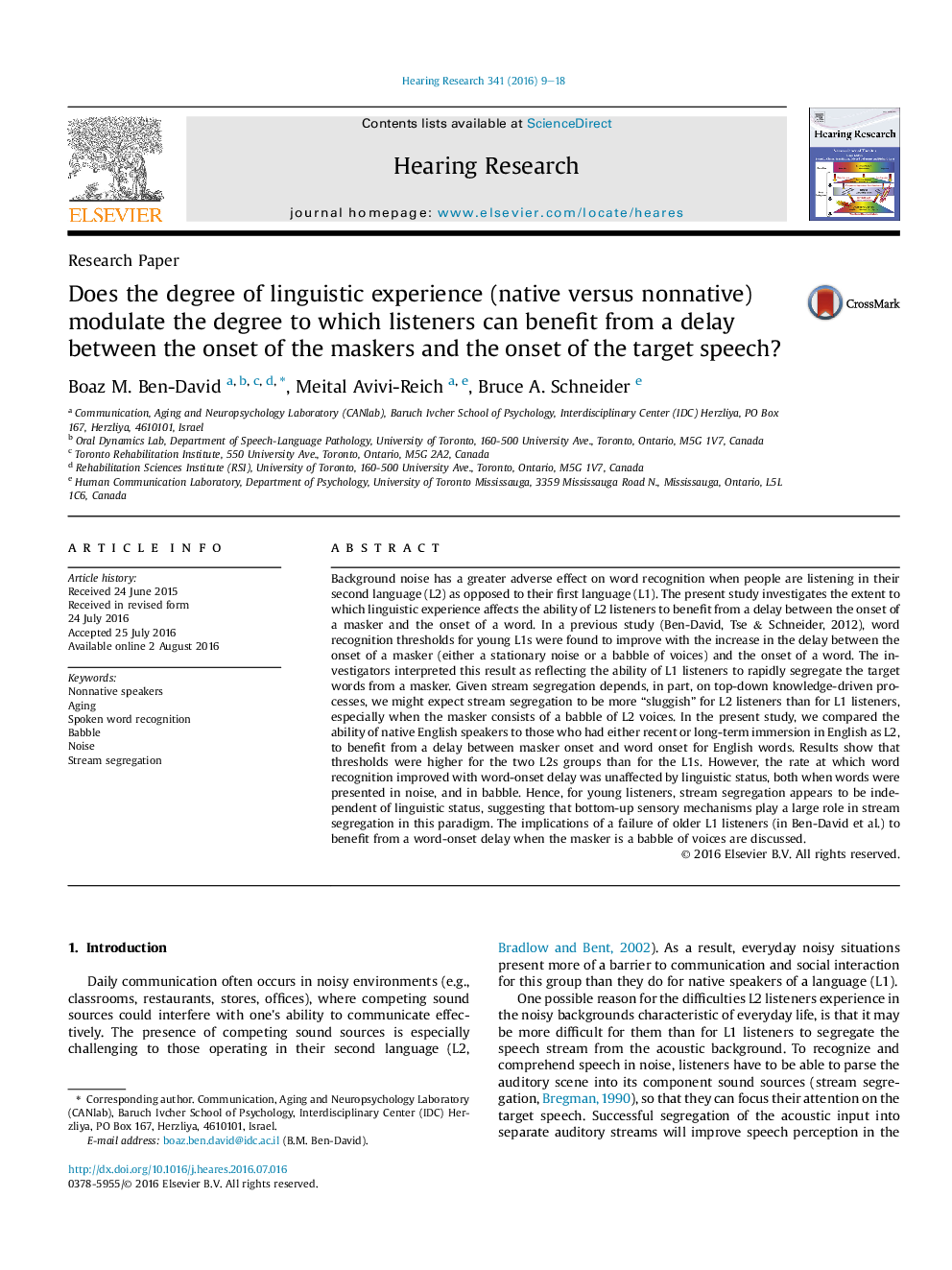| کد مقاله | کد نشریه | سال انتشار | مقاله انگلیسی | نسخه تمام متن |
|---|---|---|---|---|
| 6286863 | 1615559 | 2016 | 10 صفحه PDF | دانلود رایگان |
عنوان انگلیسی مقاله ISI
Does the degree of linguistic experience (native versus nonnative) modulate the degree to which listeners can benefit from a delay between the onset of the maskers and the onset of the target speech?
ترجمه فارسی عنوان
آیا میزان تجربه زبانشناختی (بومی در مقابل غیر طبیعی) درجهبندی می کند که شنوندگان می توانند از تأخیر بین شروع ماسکورها و شروع سخن هدف استفاده کنند؟
دانلود مقاله + سفارش ترجمه
دانلود مقاله ISI انگلیسی
رایگان برای ایرانیان
کلمات کلیدی
سخنرانان غیرقانونی، سالخورده، به رسمیت شناختن سخنرانی، بابل سر و صدا، جداسازی جریان،
موضوعات مرتبط
علوم زیستی و بیوفناوری
علم عصب شناسی
سیستم های حسی
چکیده انگلیسی
Background noise has a greater adverse effect on word recognition when people are listening in their second language (L2) as opposed to their first language (L1). The present study investigates the extent to which linguistic experience affects the ability of L2 listeners to benefit from a delay between the onset of a masker and the onset of a word. In a previous study (Ben-David, Tse & Schneider, 2012), word recognition thresholds for young L1s were found to improve with the increase in the delay between the onset of a masker (either a stationary noise or a babble of voices) and the onset of a word. The investigators interpreted this result as reflecting the ability of L1 listeners to rapidly segregate the target words from a masker. Given stream segregation depends, in part, on top-down knowledge-driven processes, we might expect stream segregation to be more “sluggish” for L2 listeners than for L1 listeners, especially when the masker consists of a babble of L2 voices. In the present study, we compared the ability of native English speakers to those who had either recent or long-term immersion in English as L2, to benefit from a delay between masker onset and word onset for English words. Results show that thresholds were higher for the two L2s groups than for the L1s. However, the rate at which word recognition improved with word-onset delay was unaffected by linguistic status, both when words were presented in noise, and in babble. Hence, for young listeners, stream segregation appears to be independent of linguistic status, suggesting that bottom-up sensory mechanisms play a large role in stream segregation in this paradigm. The implications of a failure of older L1 listeners (in Ben-David et al.) to benefit from a word-onset delay when the masker is a babble of voices are discussed.
ناشر
Database: Elsevier - ScienceDirect (ساینس دایرکت)
Journal: Hearing Research - Volume 341, November 2016, Pages 9-18
Journal: Hearing Research - Volume 341, November 2016, Pages 9-18
نویسندگان
Boaz M. Ben-David, Meital Avivi-Reich, Bruce A. Schneider,
